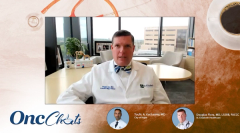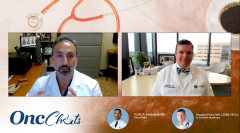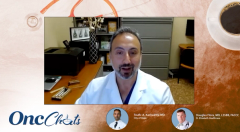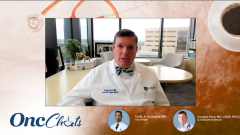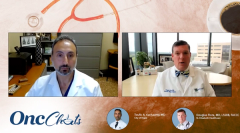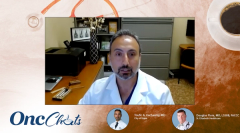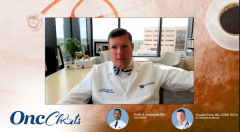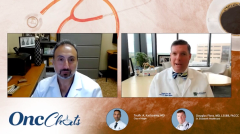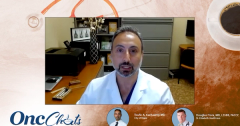
Assessing the Promise of AI in Oncology: A New Journal
In this third episode of OncChats: Assessing the Promise of AI in Oncology, Toufic A. Kachaamy, MD, and Douglas Flora, MD, LSSBB, FACCC, discuss the launch of a new journal that will focus on educating the field on the latest research efforts being made with artificial intelligence.
Episodes in this series

In this third episode of OncChats: Assessing the Promise of AI in Oncology, Toufic A. Kachaamy, MD, and Douglas Flora, MD, LSSBB, FACCC, discuss the launch of a new journal that will focus on educating the field on the latest research efforts being made with artificial intelligence (AI).
Kachaamy: Fantastic. So, you started a journal on AI in precision medicine. Is that the right title for the journal?
Flora: That’s right; it’s called AI in Precision Oncology, and we’re about to take our first manuscripts in mid-August. We’ll have a preview issue out [this month], and then our formal launch [will be] in January.
Kachaamy: Why did you feel that a journal dedicated to this field is important, as opposed to having publications [on this topic] in different journals?
Flora: I’m 52 now, and so, I’ve spent 20 years in this field, and I deal with a lot of the frustrations [that] a lot of our doctors in all fields [have] in that we don’t provide the most efficient care. I think the doctor-patient relationship has been damaged in the past 10 years with the electronic health records and having to type epic notes in your rooms. As such, I see these new tools as transformative, [a way] to get us back in the room with patients, [where we can] at them eye to eye and be more empathetic.
The idea behind the journal was democratizing these technologies and hoping to use an evidence-based, peer-reviewed journal to make these technologies less intimidating, maybe to demystify artificial intelligence, [to] try and deliver useful tools to the hands of the people who need them the most, and to ultimately bridge the gap between the technologies that are being developed and the folks in the field who need them. My hope is that we make this a very oncology-friendly journal; it’s not going to be heavy with methodology and math and deep-learning module descriptors. Those will be listed, [we’ll] put them in the appendix, but I wanted to make it readable and digestible for the doctors like you and me who are interested in learning about this but are time bankrupt and trying to keep up pace with all the advances in our fields.
Kachaamy: I love that term, “time bankrupt.” We’re all suffering from it now. Like in most newer fields, defining [what is] high quality can be challenging in the beginning. If you can share, especially for people who want to submit for publication, how are you defining what is a high-quality article in a field that is fast evolving and also new, where a lot of the clinical folks do not understand the methodologies like you mentioned?
Flora: Right. Well, I think the first few issues actually will be a lot of education. We’re going to have a lot of front matter, defining some of the terms that we’ve talked about in a user-friendly [way]. We’re going to be writing these things, and I will, as an editor, [be] talking about the ethics of this and discussing transparency, bias, and [important topics] like that, so that we’re guiding discussions for oncologists at the pace [in which] they can feel comfortable that [know] this is evidence based.
[That said,] we’re looking for submissions that look at the development [and] application of AI for cancer detection, diagnosis, or decision making for prognosis or treatment strategies. We want tools or articles that can show some validation for some of the tools that are out there and available today, to help with therapy strategies, treatment planning, conformal planning for radiation treatment plans, and heavy physics—those sorts of things. A lot is being done in drug development and clinical trial enrollment, and so, we’d like to open it up to things like that. And then, [there are] all of the big issues that we’re grappling with as a society: ethical, racial bias, guardrails, and regulatory oversight—and those will all be addressed by leaders in our field in the front matter and in [other] parts of this journal. I hope to use [this] to spread the word that while these technologies are exciting, they really need to be guided carefully by a group of careful clinicians who are [knowledgeable] in this field.
Check back on Monday for the next episode in the series.


